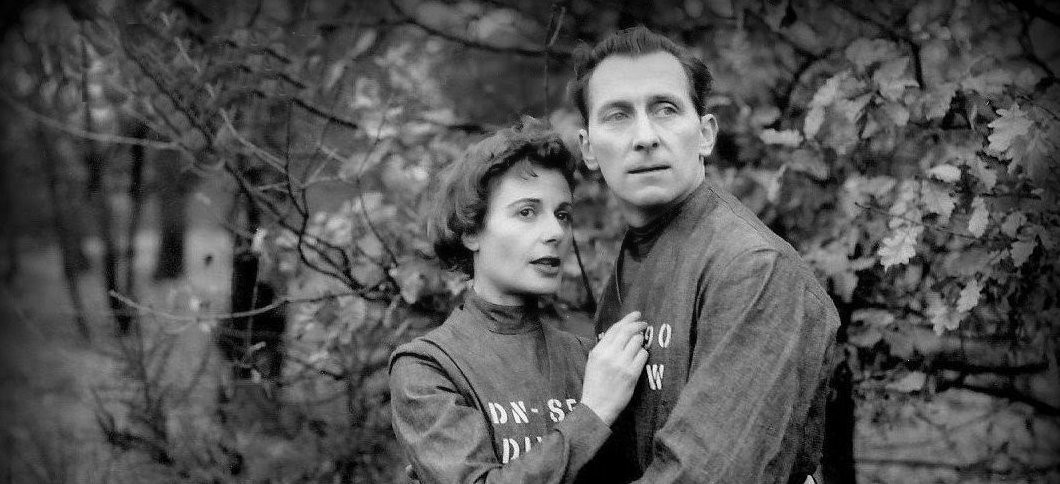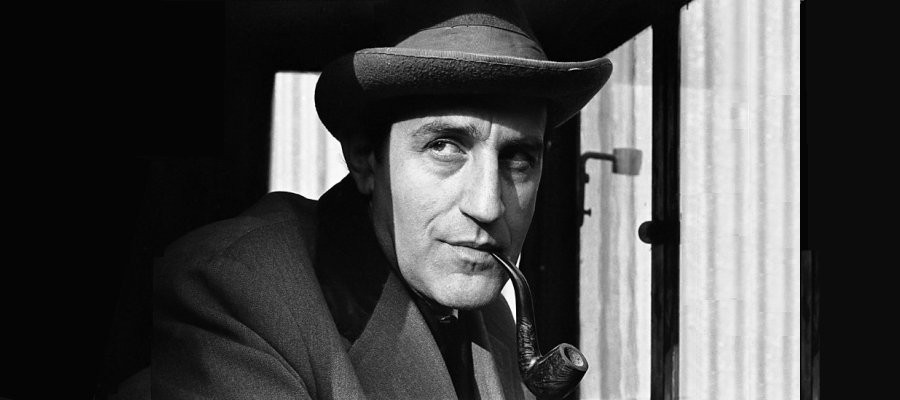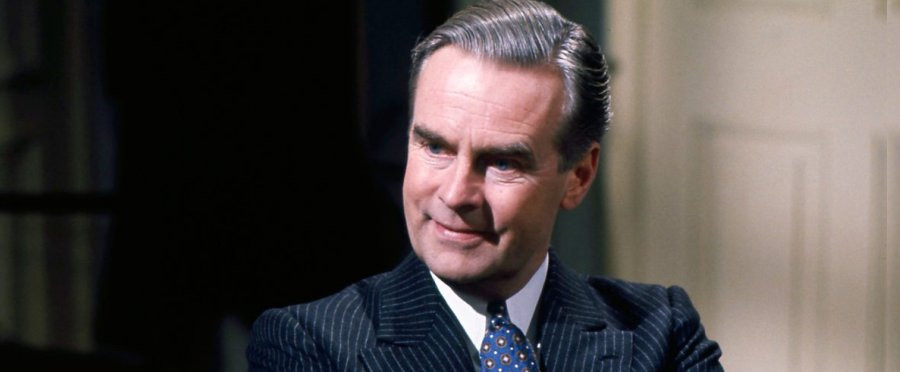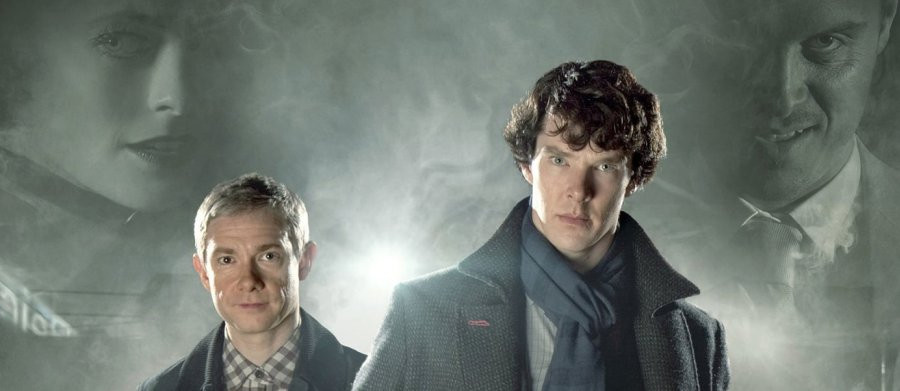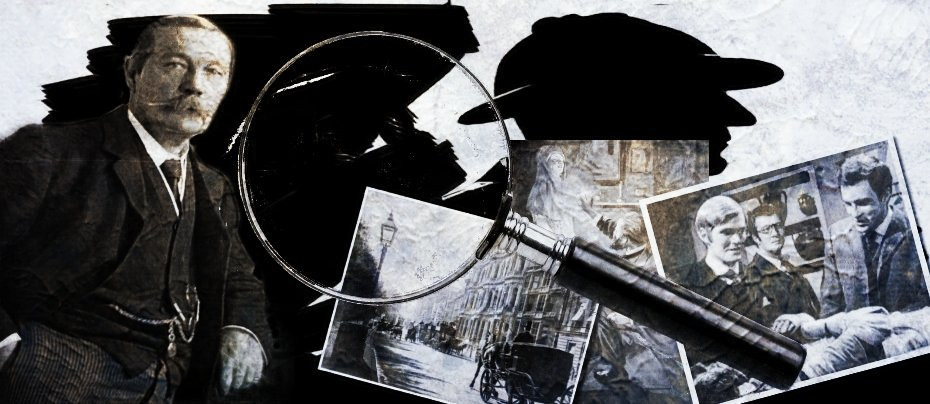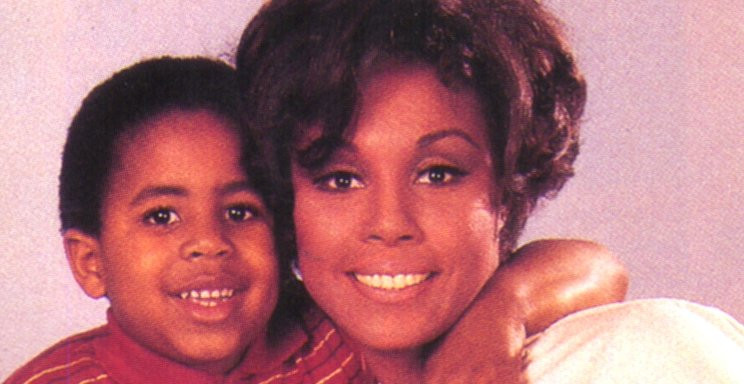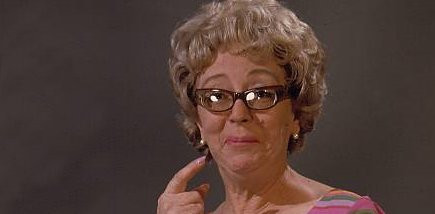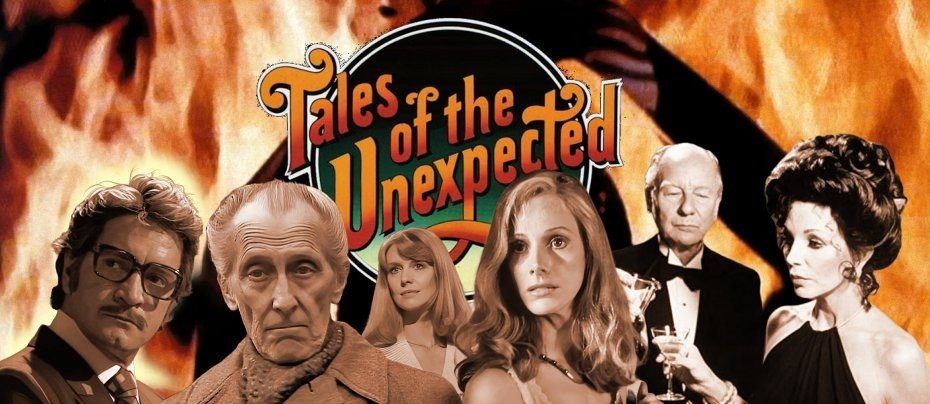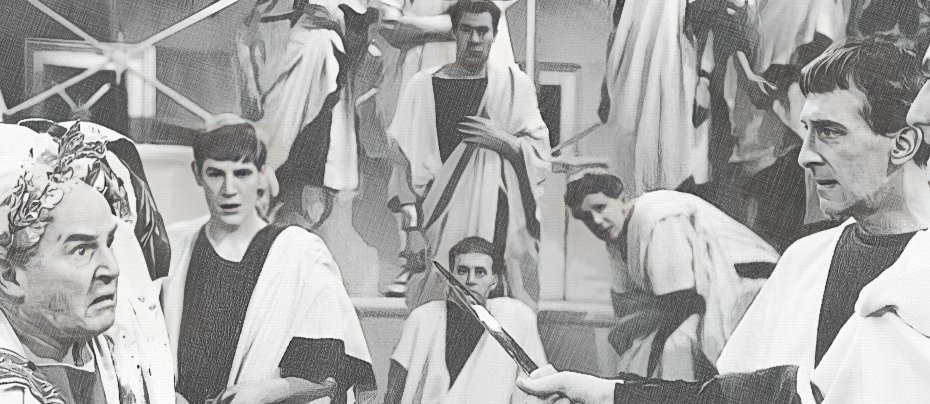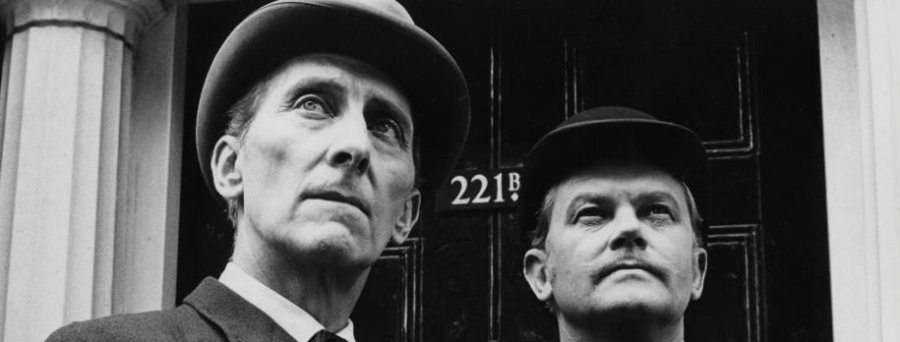
Sir Arthur Conan Doyle's Sherlock Holmes
1968 - United KingdomAs with the character's unexpected return in print from his supposed death at the Richenbach Falls, Sherlock Holmes was to return to British television screens in 1968, three years following the departure of Douglas Wilmer from the role, when a new series was mooted within the hierarchy of the BBC.
True to his word, Wilmer steadfastly refused to return due to the twin problems of curtailed production schedules and the difficulties of working within the complex role of the Holmes character itself. Thus after being refused by noted stage actor John Neville, the coveted role was offered to -and accepted by- one of Britain's finest film actors, legendary Hammer horror star, Peter Cushing. Cushing had originally played the character a decade before in the Hammer film company's big screen adaptation of The Hound of the Baskervilles. However, rather than begin the series entirely afresh, in order to maintain the rights from the Doyle Estate, the new series produced by William Stirling, had to be treated by the BBC as a direct sequel to the earlier Wilmer vision. Acting as the only direct screen nod to earlier continuity, Nigel Stock returned as Watson, while the roles of Mrs. Hudson, Lestrade and Mycroft Holmes were recast with Grace Arnold, William Lucas and Ronald Adam, respectively.
The new version, now re-titled Sir Arthur Conan Doyle's Sherlock Holmes, in a break with Hollywood inspired tradition also opted to dispense with many of the familiar conventions invented by other actors for the character, especially such old stand-bys as the meerschaum pipe, the deer-stalker and the phrase, "Elementary, my dear Watson." in a conscious move towards bringing the character more in line with his original literary incarnation (an approach that would finally reach its Zenith with the Granada/Brett Holmes more than two decades later). Also, given its star's worldwide popularity as arguably the world's foremost horror star at the time, the new series boldly and somewhat controversially, dramatically accentuated the elements of horror and violence inherent in the original source material. Speaking of reassuming the mantle of one of fiction's most potent characters in a contemporary interview, Cushing remarked: "...We do want the series to be right.... that character is, I think, an answer to most actors' dreams."
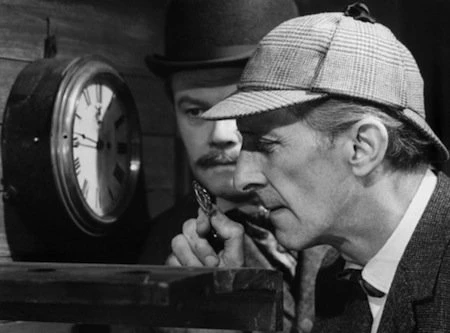
With its star being paid the then enormous rate of 735 guineas per episode, Sir Arthur Conan Doyle's Sherlock Holmes was originally envisioned by the BBC as the most costly and ambitious series of Holmes adaptations ever presented for television. A veritable galaxy of top class guest stars were slated for key appearances, including Orson Welles, Peter Ustinov, Sean Connery and George Sanders. Unfortunately, this particular aspect of the production was abandoned due to the massive budget overrun incurred during the filming of the initial episode. Problems were further exacerbated when the series also began to fall serious behind due to adverse weather conditions, which ultimately lead to the filming of the remaining episodes being somewhat noticeably hurried. Despite these setbacks, the series did successfully manage to evoke a very real flavour of Doyle's originals, mainly through Cushing's consummate professionalism and legendary attention to detail in his determination to present an authentic portrait of Holmes.
As with Wilmer before him and Brett after him, Cushing, was to ultimately find the role one of the most challenging of his illustrious career compounded by the fact that it came at a time when his wife was suffering from ill health, as he noted in his autobiography: "I was kept busy for the next nine months, making a series of 15 Sherlock Holmes adventures with the excellent and humorous Nigel Stock playing Dr. Watson. It proved a popular programme, but I was most displeased with my performances. Helen's condition was a constant worry, diverting my concentration, and of course, I missed her presence in the control box, which gave me the self-confidence I lacked. She was also my sternest critic, and I felt lost without her guidance. Adding to my anxieties, the BBC's schedule went a little haywire. The original plan had been ten days' rehearsal, plus recording, for each instalment, including location shooting. Unfortunately, our British climate had not been taken into account, and rain often "stopped play", losing us valuable hours while we waited for it to stop and leaving little time for the interiors. The series began transmission before we'd completed the full complement, so we were pressured into getting them ready to keep up with the weekly demand. I can never give my best under such conditions, and to my mind, it was apparent on the screen."
In spite of these problems, by the end of it's 16 episode run, the series had firmly established Peter Cushing as one of the best loved and memorable embodiments of Sherlock Holmes in the eyes of both an appreciative viewing public and the majority of critics alike. Ultimately though, although the actor would return to the role in 1984 at the age of 68 for Channel's Four's expensive and glossy TVM, "The Masks of Death", alongside Sir John Mills as Doctor Watson, like Douglas Wilmer before him, Cushing had realised just how demanding the character was to play: "...Not the pleasantest of characters.... It's a very difficult part to play... he goes up and down like a yo-yo. You've got to be awfully careful when you play a part like that that it doesn't become annoying to the audience."
Ultimately, Sir Arthur Conan Doyle's Sherlock Holmes despite its production problems can be viewed as a flawed yet entertainingly successful addition to the Sherlockian television canon, which especially in the depiction of the master detective presented by Peter Cushing, almost certainly pointed the way towards the superb realization which would follow in the form of Jeremy Brett's masterful embodiment for Granada Television.
Seen this show? How do you rate it?
Seen this show? How do you rate it?
Published on February 5th, 2019. Written by Peter Henshuls "Elementary" (2000) for Television Heaven.


